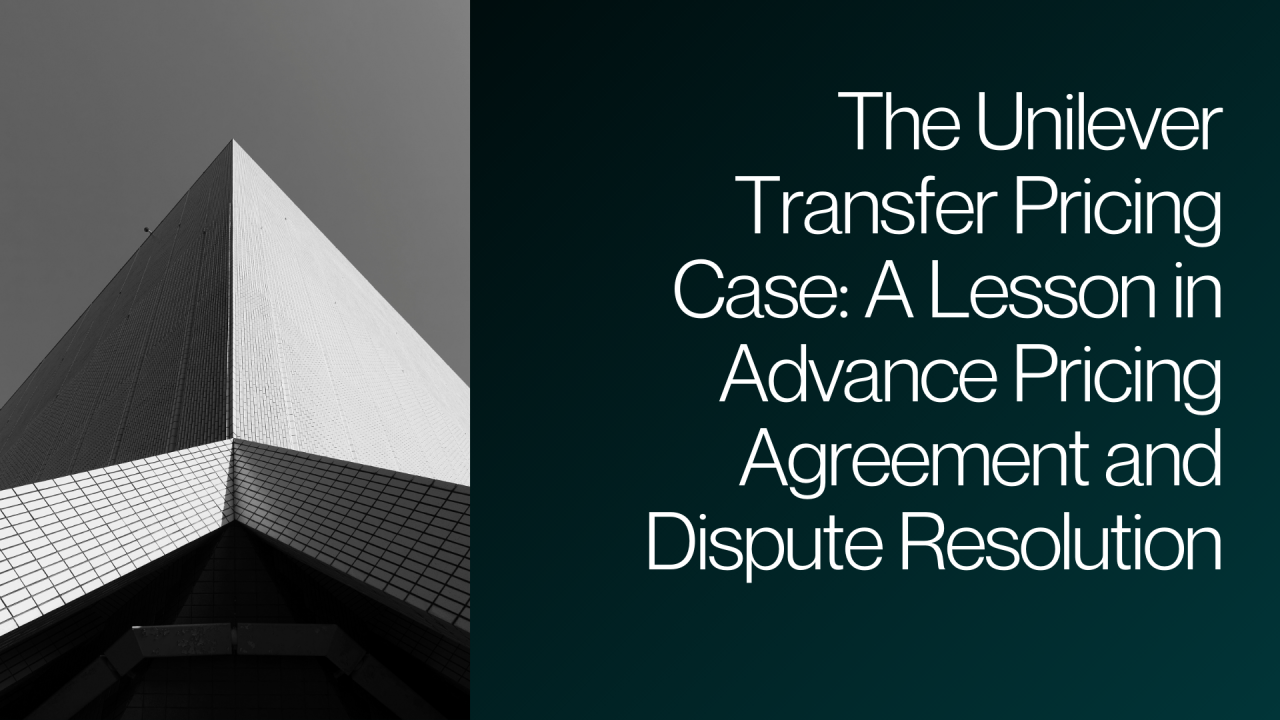Introduction: When Tax Authorities and Multinational Corporations Collide
Global business operations bring immense opportunities—but they also create complex tax challenges. For companies like Unilever Industries (P.) Ltd., which operates across multiple jurisdictions, the question of how to allocate profits and expenses across countries can lead to significant disputes with tax authorities.
A recent ruling by the Mumbai ITAT in the case of Dy. Commissioner of Income Tax v. Unilever Industries (P.) Ltd. sheds light on a critical issue in international taxation—Transfer Pricing (TP) disputes and their resolution through the Mutual Agreement Procedure (MAP) and Bilateral Advance Pricing Agreement (BAPA).
At the centre of this case is a dispute over the pricing of scientific and technical services provided by Unilever India to its UK-based Associated Enterprise (AE), Unilever Plc. The Indian tax authorities made a significant transfer pricing adjustment, arguing that Unilever India should have received a higher profit margin and a share of royalty income for its contributions.
The dispute, which spanned multiple assessment years, ultimately found resolution through a Bilateral Advance Pricing Agreement between India and the UK. The case provides valuable insights into how multinational corporations can mitigate tax risks and avoid lengthy litigation.
Background: The Transfer Pricing Dispute in R&D Services
Unilever India’s Role in the Global R&D Network
Unilever India was engaged in providing scientific and technical services, essentially acting as a contract research and development (R&D) service provider for Unilever Plc. in the UK.
· Under an agreement signed in 2000, Unilever India was compensated on a cost-plus basis, meaning it received reimbursement for its R&D expenses plus a markup of 5% profit.
· For the 2010-11 assessment year, Unilever India billed ₹51.65 crores to Unilever Plc., reporting an operating profit margin (OP/OC) of 22.08%—higher than the industry benchmark.
Tax Authorities Challenge the Benchmarking Method
Despite Unilever India’s compliance with the Transactional Net Margin Method (TNMM), the Transfer Pricing Officer (TPO) rejected its benchmarking approach and made significant adjustments:
1. Increasing the Comparable Profit Margin
o The TPO held that Unilever India’s cost-plus 5% remuneration was too low.
o Instead of the 22.08% OP/OC margin reported by Unilever India, the TPO adjusted the arm’s length margin to 20.08%, resulting in an additional tax liability of ₹7.41 crores.
2. Demanding a Share of Royalty Income
o The TPO argued that Unilever India played a key role in developing intellectual property (IP) for Unilever Plc.
o Since Unilever Plc. Earned ₹3010 crores in royalty income, the TPO estimated that ₹90.3 crores should be attributed to Unilever India, of which it should have received 50% (₹45 crores) as a royalty share.
o This meant a total tax adjustment of ₹19.32 crores was imposed on Unilever India.
Unilever India Fights Back
Unilever India challenged these adjustments before the Dispute Resolution Panel (DRP) and later appealed to the Income Tax Appellate Tribunal (ITAT). The company also invoked the Mutual Agreement Procedure (MAP) under the India-UK tax treaty.
How International Tax Agreements Resolved the Dispute
1. The Role of the Mutual Agreement Procedure (MAP)
The MAP is a dispute resolution mechanism under double tax treaties, allowing taxpayers to resolve tax disputes without resorting to litigation. In this case, Unilever India:
· Initiated MAP proceedings in 2015, covering disputes from 2010-11 to 2014-15.
· Engaged tax authorities from both India and the UK, seeking a negotiated resolution.
2. Entering a Bilateral Advance Pricing Agreement (BAPA)
In 2022, Unilever India entered into a Bilateral APA (BAPA) with both tax authorities, agreeing on a fixed arm’s length margin of 16.7% for its R&D services.
3. Outcome: Adjustments Reversed
· Since Unilever India’s actual profit margin (22.08%) was higher than 16.7%, no adjustment was warranted for the 2010-11 to 2012-13 assessment years.
· For 2013-14 and 2014-15, where margins were below 16.7%, minor adjustments were agreed upon.
· The case was settled without prolonged litigation, saving Unilever both legal costs and reputational risks.
Key Takeaways for Multinational Corporations
1. The Power of APAs and MAP in Dispute Resolution
This case highlights the effectiveness of international dispute resolution mechanisms like MAP and BAPA. Instead of battling tax authorities in court, Unilever leveraged diplomatic negotiations to reach a fair resolution.
For businesses with cross-border operations, APAs and MAPs provide certainty and reduce the risk of double taxation.
2. The Risk of Tax Authorities Claiming a Share of IP-Generated Income
One of the most contentious aspects of this case was the TPO’s attempt to attribute a share of Unilever Plc.’s ₹3010 crore royalty income to Unilever India.
Companies engaged in R&D services must:
· Carefully structure their intercompany agreements.
· Ensure IP ownership and compensation are clearly defined.
· Consider including IP-related compensation in their TP policies to preempt potential disputes.
3. Consistency in Transfer Pricing Documentation is Critical
Unilever India successfully defended its case by maintaining consistent transfer pricing documentation across multiple years. This shows the importance of:
· Regularly updating TP policies to reflect industry trends.
· Benchmarking transactions with reliable external comparables.
· Maintaining clear documentation to defend against aggressive tax assessments.
4. Governments are Tightening Their Grip on Transfer Pricing
The case reflects a broader trend of increased scrutiny on intercompany transactions, especially in high-value functions like R&D and IP creation.
With BEPS (Base Erosion and Profit Shifting) regulations evolving globally, companies must expect:
· Stricter enforcement of transfer pricing rules.
· Greater scrutiny of cost-plus models in service transactions.
· More disputes over profit allocation and IP-related earnings.
Conclusion: A Blueprint for Avoiding Costly Tax Disputes
The Unilever India case is a textbook example of how multinational corporations can navigate complex transfer pricing disputes through the Advance Pricing Agreement.
By proactively engaging in MAP and APAs, companies can:
· Resolve tax disputes efficiently.
· Minimize financial risks.
· Avoid reputational damage from prolonged litigation.
As tax authorities worldwide increase their focus on transfer pricing, businesses must adopt a proactive approach—ensuring clear documentation, robust intercompany agreements, and a strong dispute resolution strategy.
For companies engaged in R&D, shared services, or digital operations, this case is a wake-up call to rethink their global tax strategies. The future of tax compliance is here—are businesses ready?







